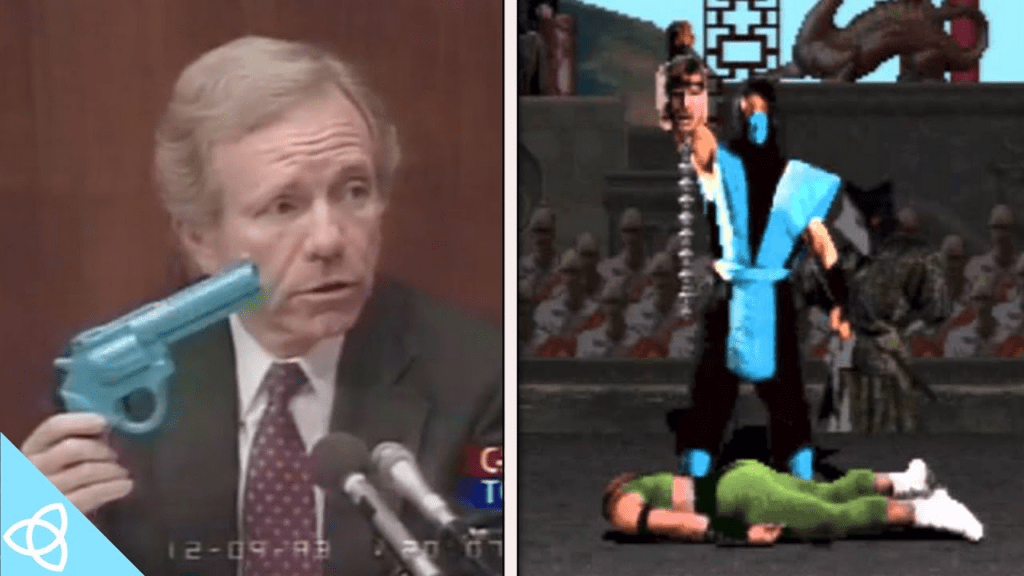
DHS and FBI Target Gamers in Misguided Fight Against Terrorism
The report from the Government Accountability Office reveals the DHS intelligence office meets with gaming firms like Roblox, Discord, Reddit and others.
 fandompulse.com
fandompulse.com
The Department of Homeland Security (DHS) and FBI are coordinating with major gaming companies to monitor gamers for potential terrorism threats, according to a disturbing new government report. This overreach represents a severe threat to the free speech and privacy rights of gamers.
The report from the Government Accountability Office reveals the DHS intelligence office meets with gaming firms like Roblox, Discord, Reddit, and others. These companies can then share information on gamers’ online activities that merely “violate the companies’ terms of service” – a shockingly low bar.
The FBI also conducts briefings to gaming corporations on perceived threats from gamers. Through its nationwide field offices, the FBI receives tips from these companies about gamers’ lawful online speech and views deemed “extremist” for further investigation.
This government overreach is occurring with no overarching strategy or clear goals, the GAO warns. The DHS has agreed to develop such a strategy by June 2024, paving the way for further monitoring of gamers’ private online activities in the name of combating terrorism. Senator Dick Durbin (D) wrote to Merrick Garland, the Attorney General, asking for a briefing on available channels from the Justice Department in a letter: “Unlike more traditional social media companies — which in recent years have developed public facing policies addressing extremism, created trust and public safety teams, and released transparency reports — online gaming platforms generally have not utilized these tools..” Durbin writes, “..for DOJ and the online video game industry to communicate and coordinate” on the threat of “online video games by extremists and other malicious actors.”
This silent censorship is already underway, with the GAO report revealing gaming companies are sharing user data and coordinating with federal agencies based on mere terms of service violations. The FBI and DHS then investigate these gamers as potential domestic terrorists.
Joe Biden
However, major concerns exist about the FBI and DHS’s ability to accurately identify real terrorist threats versus lawful online speech. According to the White House, domestic terrorism poses a greater threat to the United States than foreign terrorist organizations like the Islamic State group. The White House unveiled the nation’s first-ever domestic terrorism combat strategy in June 2021 as a result of Biden’s directive. “Online gaming platforms” are mentioned in the strategy as a location where “recruiting and mobilizing individuals to domestic terrorism occurs.”
Compounding this issue, large gaming corporations are increasingly embracing Diversity, Equity, and Inclusion (DEI) initiatives that can be used as a pretext to censor unpopular views under the guise of combating “extremism.” The end result is a dangerous convergence of government overreach and corporate censorship that threatens to strangle the free expression and privacy of gamers and online communities.
All Americans should be deeply concerned by this unchecked government surveillance and corporate censorship targeting gamers and online communities. Gaming platforms have become modern-day public squares where ideas are exchanged freely. Allowing the DHS, FBI, and gaming corporations to secretly monitor, investigate and silence gamers sets a disturbing precedent.

The national security establishment’s obsession with rooting out “extremism” online is quickly devolving into a war on free speech, dissent, and privacy rights. History shows government agencies motivated by politics frequently abuse their monitoring powers to target ideological opponents and chill free expression.
Instead of government agencies and gaming corporations colluding to wage a morally bankrupt crusade against online “extremism,” they must uphold the fundamental American values of free speech, open discourse, and privacy. Otherwise, gamers and all online users will increasingly find themselves living under the boot of silent censorship and government overreach.




